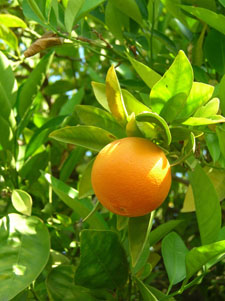
Question: I have access to a huge supply of leaves, which I grind and store for mulch, and I use the "straw" from ornamental grass to keep down weeds on walkways. I also have a large supply of pine needles and wonder if I should use them, too, as mulch in my vegetable garden? I grow tomatoes, green beans, lettuce, onions, spinach, cucumbers, and cabbage.
Answer: You are quite the enterprising gardener. Grinding and storing your leaf litter and garden debris for mulch saves money, reduces transport of materials (in and out), and recycles the local nutrients. Your methods are as green as chlorophyll.
In regards to whether you can add pine needles or "pine straw" to the mix, I emphatically respond YES. Pine needles make excellent mulch that conserves soil moisture, moderates soil temperatures, improves soil tilth, reduces erosion, and hinders germination of weed seeds. In the vegetable garden, pine needles work well alone or mixed with your other leaves.
Some people worry that pine needles will acidify the soil to damaging levels, but that is unfounded. Pine needles have a pH of slightly above 6, which is fine for most garden plants. Besides, it takes a lot more work than just mulching to alter a soil's pH level. So use those pine needles, and if you have extra, send some my way!

Question: I have a small garden where I try different plants. I have an orange tree that I got in 1999. Left it in the pot for over a year and finally planted it. The first year, while it was still in the pot, I got two oranges. The next year after I planted it in the ground, nothing, after that one or two or three a year is all I have been getting. Last year was the most I got, about ten. I assumed whatever was wrong is corrected, but this year I am looking at two oranges. What am I doing wrong?
Answer: You don't say what type of orange, where it is placed, or the condition of the plant. But the most common problem with fruiting of oranges is a lack of fertilizer. All citrus trees need lots of nitrogen. A mature tree should receive about a pound of nitrogen fertilizer every year. Divide this amount over several feedings from late winter to summer. Remember to water consistently in early spring when buds are developing and blooming. Also dissolve a micronutrient solution with iron, zinc, and magnesium in a spray bottle, and spray it on the foliage of your tree every spring. Good luck and invite me over for orange juice next year!